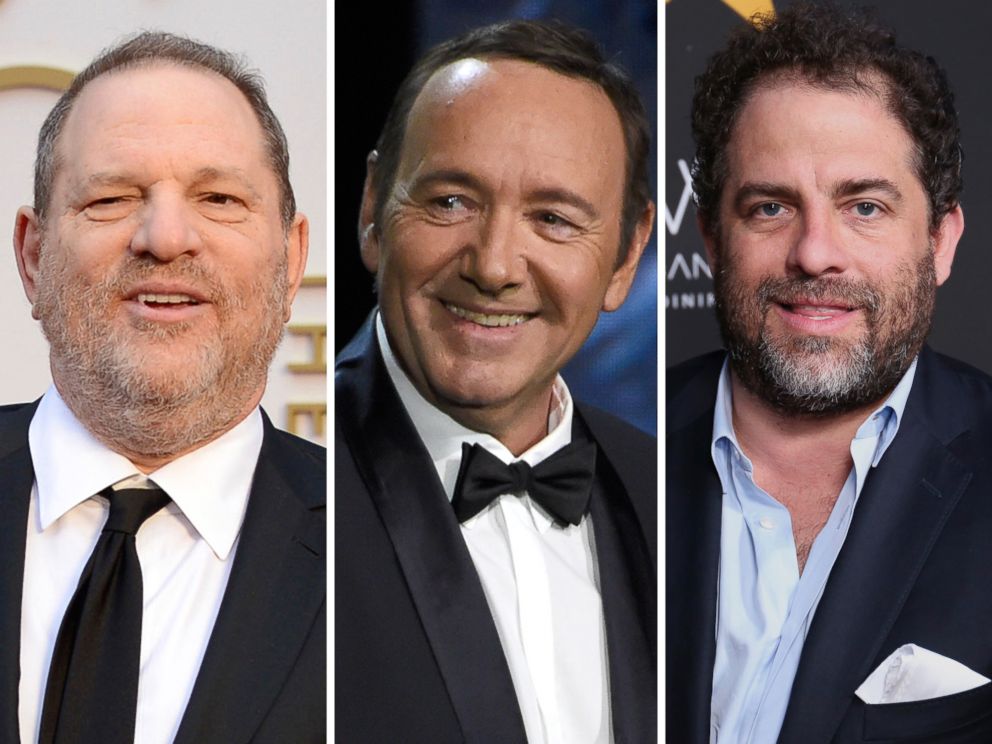But if America overall seems to have backslid into a darker age, Hollywood is examining everything in a new, more starkly revealing light.
盡管美國整個(gè)國家看似已經(jīng)墮入了更加黑暗的時(shí)代,好萊塢卻在用新的,更加赤裸的方式檢視一切了。
Over the past five months alone, Hollywood has moved quickly to right long-established wrongs and to rattle ancient modes of thinking.
就拿過去的五個(gè)月來說,好萊塢也已經(jīng)迅速行動起來,糾正長期存在的錯(cuò)誤,抨擊古老的思維方式。
The revelations about Weinstein crashed like a tidal wave:
韋恩斯坦被暴露的丑聞如同海嘯般崩塌:
even though the fallen mogul had plenty of enablers,
盡管這位轟然倒塌的大亨有大量的幫兇,
relatively few people—beyond the women he abused or harassed—grasped the full extent of his manipulative, devious behavior.
但除了被他侵犯或騷擾過的那些女性,幾乎沒有人完全清楚他的操控、非正當(dāng)行為到了何等地步。
In our naiveté, we'd always assumed that beautiful, successful female actors just drifted through life, untouched by the travails ordinary women deal with every day;
天真無邪的我們總以為美麗,成功的女演員只會隨波逐流,不食人間煙火;
suddenly, we knew differently, as women risked their careers to speak out first about Weinstein and then, in a swell that became bigger and louder by the day, other abusers.
當(dāng)有女性甘愿冒著犧牲職業(yè)生涯的風(fēng)險(xiǎn)也要第一個(gè)站出來控訴韋恩斯坦時(shí),突然之下,我們有了不同的看法,接著,隨著雪球越滾越大,其他施虐者也被揭露了出來。
The subsequent and swift downfall of other Hollywood players changed everything about how we view women—or anyone who doesn't hold the big power cards—in the entertainment business.
隨后,其他好萊塢演員的迅速垮臺也徹底改變了我們對娛樂圈女性以及其他所有人微言輕的人的看法。
Now Hollywood isn't just part of the political conversation; it's actively driving it,
如今的好萊塢不僅僅是政治話語的一部分,也是積極推動政治發(fā)展的一股力量,
motivating its denizens to speak out about certain core American values in a way we've never seen before.
它激勵著所有的好萊塢人用我們前所未見的方式為我們的某些核心價(jià)值觀發(fā)聲:
What does it mean to be an American?
身為一名美國人意味著什么?

What color is the hat you're wearing, and what does it say on the front?
你戴的帽子是什么顏色?上面寫著什么?
What rights do you stand up for, and which—or how many—are you willing to let pass by?
你擁護(hù)怎樣的權(quán)利?什么權(quán)利,以及你多大程度上愿意妥協(xié)?
Hollywood is something that defines us as Americans, for better and worse.
不管怎樣,好萊塢都是我們作為美國人的一個(gè)標(biāo)簽。
Movies are, after all, one of our biggest cultural exports, one of our chief modes of presenting ourselves to the world.
畢竟,電影是我們最大的文化出口產(chǎn)品之一,也是我們向世界展示自己的主要模式之一。
But even just watching them means something.
但即便只是看好萊塢電影也是很重要的。
What mark do the movies—and, to some extent, the people who make them—leave on us?
那些電影,以及背后的那群人,給我們留下了怎樣的印記?
The Oscar nominations this year tell the story of Hollywood's recent evolution.
今年提名奧斯卡的那些影片就講述了好萊塢近期的轉(zhuǎn)變。
Black Lives Matter, which sprang to life after the 2013 acquittal of George Zimmerman in the killing of Trayvon Martin,
2013年,射殺崔旺·馬丁的喬治·齊默爾曼被無罪釋放以后,“黑人的生命也很重要”行動應(yīng)運(yùn)而生。
not only opened new conversations about racism and the justice system,
這一行動不僅開啟了關(guān)于種族主義和司法系統(tǒng)的新對話,
but also pushed us to think harder about representation of people of color in the movies, and about who was getting to make those movies.
也促使我們更加深入地思考電影中有色人種的存在感,以及那些電影由誰來拍的問題。
In 2015, you would have had to be blind not to see a problem:
要是換成2015年,遇到問題,我們就只能選擇視而不見:
nearly all the Oscar nominees were white, and that wasn't even anything new.
因?yàn)閹缀跛斜惶崦麏W斯卡的演員都是白人,這點(diǎn)也早已不足為奇了。
It was simply that, finally, the world at large had taken notice.
只不過,如今,全世界都睜開了眼睛。
譯文由可可原創(chuàng),僅供學(xué)習(xí)交流使用,未經(jīng)許可請勿轉(zhuǎn)載。












